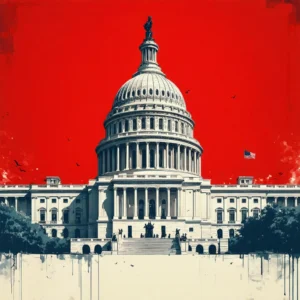
Overview of the Disbarment Case
The recent disbarment of high-profile criminal barrister Jo Sidhu KC has sent shockwaves through the legal community, raising numerous questions about the maintenance of professional ethics and the consequences of misconduct. This case, which resulted in a tribunal decision to remove a once-respected figure from the profession, offers a complex narrative that intertwines allegations of inappropriate behaviour with later developments within the disciplinary process. The tribunal examined multiple claims of misconduct, and although some allegations were dismissed, three proven instances exposed a pattern of abuse of power directed towards a vulnerable individual under Sidhu’s supervision.
Background and Context
The Role of a Barrister in the Legal System
Barristers are tasked with upholding the law, representing clients, and, most importantly, maintaining a high standard of professional conduct. The core values of justice, fairness, and respect are not merely aspirational ideals but legal mandates designed to ensure that the balance of power is never exploited. In this context, the actions attributed to Jo Sidhu represent a stark deviation from the ethical responsibilities inherent in his role.
Detailed Allegations and Tribunal Proceedings
A series of 15 allegations were initially brought against Sidhu, involving three law students or aspiring barristers undergoing mini-pupillage. During the hearing, five allegations were struck out as unsubstantiated, and seven others were ruled not to constitute professional misconduct. The tribunal ultimately confirmed three incidents involving an unnamed woman in her 20s. According to the evidence presented, Sidhu’s actions included inviting the individual to his hotel room during the mini-pupillage, asking her to stay the night, and even preparing a pillow “barricade” on the bed despite her protests. Although the sexual behaviour was initiated consensually according to certain aspects, the context — a professional environment with a clear power differential — rendered the conduct highly inappropriate and in violation of acceptable professional boundaries.
Analysis and Implications for the Legal Profession
Impact on Professional Ethics
This case highlights the inherent dangers of misusing power within a professional setting, particularly in professions where mentorship and the support of emerging talent are critical. The inappropriate and planned conduct demonstrated a breach of not only ethical boundaries but also a disregard for the safeguarding procedures that protect vulnerable individuals. When a recognized leader such as Sidhu engages in such behaviour, the reputation of the entire profession is called into question, thereby undermining public trust and weakening the regulatory mechanisms designed to uphold fairness and justice.
Institutional Response and Future Preventative Measures
The response of the Bar Standards Board (BSB) emphasizes the regulatory commitment to removing individuals whose actions jeopardize the integrity of the legal system. The BSB, in its public statement, noted the importance of reporting misconduct and reaffirmed its dedication to supporting victims while ensuring that the profession maintains a zero-tolerance stance towards any form of harassment or bullying. Consequently, several initiatives have been introduced:
- Enhanced outreach sessions dedicated to educating legal professionals on resources pertaining to bullying and harassment.
- Improved guidance on effective reporting mechanisms to ensure that incidents are captured promptly and handled with the necessary urgency.
- Follow-up sessions aimed at reiterating the core ethical standards expected of all members of the Bar.
Furthermore, the adoption of more robust internal oversight is anticipated to prevent recurrence by encouraging transparency and accountability. As the legal profession continues to evolve, such cases serve as valuable pivots at which new protocols and ethical guidelines can be introduced, ultimately safeguarding the well-being of all professionals and the public they serve.
Legacy and Lessons Learned
Repercussions Beyond the Individual Case
The ramifications of the Sidhu disbarment extend beyond his personal career. They serve as a stern reminder that even eminent figures are not immune to professional accountability. Legal institutions are now more motivated than ever to enforce ethical conduct and to respond firmly when standards are breached. This decision sets an important precedent within the legal community, reinforcing the notion that no individual occupies a position above the law and that every member must adhere strictly to ethical and professional norms.
Paths Forward for Aspiring Legal Professionals
For those embarking on careers in law, this episode stands as both a warning and a guide. Professional success hinges not only on legal acumen but also on an unwavering commitment to ethical practices. Mentorship must occur in an environment of mutual respect and support, free from any form of coercion or misconduct. Establishing clear boundaries and affirming a culture of accountability are essential steps that educational institutions and legal firms must take to nurture a future generation of barristers who are not only skilled but also principled.
Conclusion
The disbarment of Jo Sidhu, while deeply unsettling, underscores a necessary process of introspection and reform within the legal profession. As laws evolve and new ethical challenges emerge, it remains imperative that regulatory bodies remain vigilant and proactive. By scrutinizing and addressing misconduct whenever it occurs, the legal community reinforces its commitment to fairness and integrity—cornerstones that are essential not just for the practitioners but for society as a whole. The case ultimately serves as an educational milestone, emphasizing that professional excellence must always be underpinned by an adherence to ethical principles and compassionate mentorship.
| Key Aspect | Details |
|---|---|
| Nature of Allegations | 15 initial allegations; three proven instances highlighted during the tribunal |
| Professional Setting | Mini-pupillage environment involving law students and aspiring barristers |
| Tribunal Verdict | Disbarment by a majority decision (three to two) due to breaches in professional conduct |
| Institutional Response | BSB’s enhanced focus on reporting mechanisms, education, and enforcement |
This comprehensive review provides insights that are invaluable not only for understanding the specifics of Sidhu’s disbarment but also for reflecting on broader issues of professional responsibility and integrity. The lessons drawn from this case will likely influence future policies and establish a benchmark for conduct within the legal community, ensuring that such breaches of trust and inappropriate behaviour are met with decisive action.




